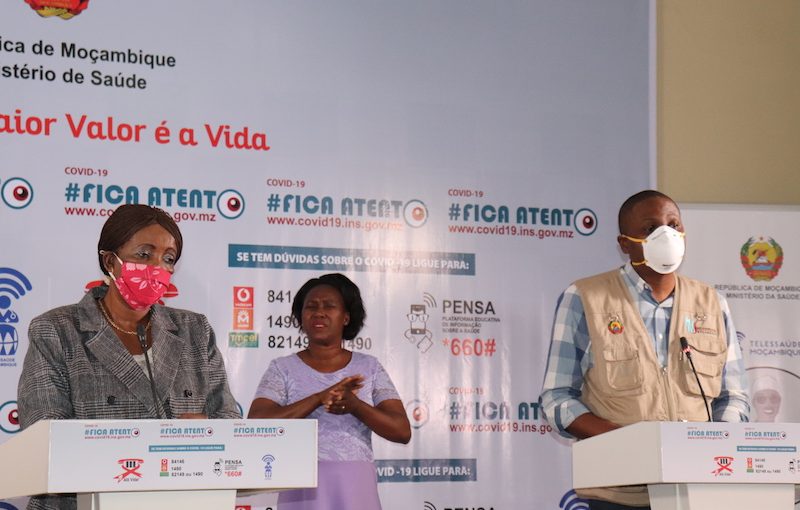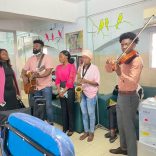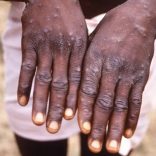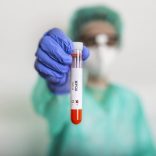Mozambique: Zimbabwe donates 130t of food, seeds and building materials for Cabo Delgado
Mozambique: Six new transmission chains reported Monday; “it is very easy for community transmission to be established” – Watch

Photo: A Verdade
Eight more individuals tested positive for the Covid-19 coronavirus in Mozambique on Monday (18), bringing the country’s cumulative total to 145. There are six more transmission chains whose source of infection has not yet been determined. They join the 38 previously existing ones, creating a scenario in which “it is very easy to establish community transmission”, the National Director for Health Survey and Monitoring warned.
The National Institute of Health tested more than two hundred suspected cases of the new coronavirus – seven samples from Cabo Delgado province, four from Zambezia, 16 from Tete, 17 from Manica, 34 from Gaza, 58 from Maputo province and 115 from Maputo city – eight of which returned positive results.
“We have eight individuals, all of whom are Mozambican nationals, one of whom has no symptoms and seven of whom have mild symptoms,” National Director of Public Health Dr Rosa Marlene revealed, citing one patient in Marracuene district, Maputo province – “One male person, aged 25 – 34 years old. This individual is a Mozambican returning from South Africa and his sample was taken at the Salamanga Transit Centre [Matutuine district, Maputo province].”
Health authorities have identified a new positive case at the District of Palma headquarters in Cabo Delgado, “a male aged between 15 and 24 years old”.
Dr Marlene revealed the existence of six new pandemic transmission chains in Maputo city: “three female individuals, one aged between 5 and 14 years and two aged between 15 and 24 years old, and three male individuals, one aged between 15 and 24 years old, one aged between 25 and 34 years old and one above 60 years of age”.
Without indicating the specific Maputo neighbourhoods where the new positive cases were diagnosed, National Director for Health Survey and Monitoring Dr Sérgio Chicumbe clarified that they are classified as new transmission chains because, “at this moment the epidemiological investigation is [still] taking place, ][so] it is not possible to specify the source of infection. This situation, in a populous neighbourhood, is of extreme concern to the Ministry of Health (…) In this context, it is very easy to establish community transmission because the matrix of social interactions between people, in terms of public transport and search for goods and services in the markets, is intense”.
Dr Chicumbe also revealed that, although the epidemiological investigation is still ongoing at the Palma district headquarters, where nine positive cases have been diagnosed, without the source of infection having yet been determined, “we have some hypotheses, which are still premature, but it is possible that they are linked to recent public works activities that happened”.
By Adérito Caldeira













Leave a Reply
Be the First to Comment!
You must be logged in to post a comment.
You must be logged in to post a comment.